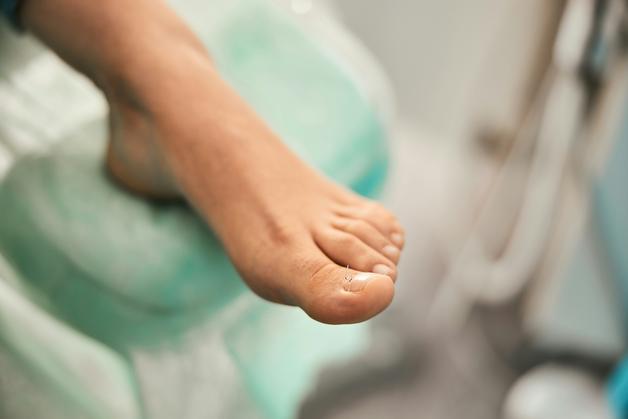The sensation of an itchy belly during pregnancy. It arrives—sometimes slowly, sometimes seemingly overnight—stealing sleep, drawing absentminded fingers to skin, and often raising a string of questions: Is this normal? Will it pass? Could there be a risk to the baby? For so many parents, the rapidly expanding belly is not merely a sign of new life, but a canvas marked by tightness, tingling, even firework bursts of itch that seem to flare in the quiet of night. Scientific explanations intermingle with daily comfort and well-being. Understanding the why and how, exploring relief, and recognizing moments to seek help can turn anxiety into autonomy. Here’s what every parent deserves to know.
Why Does an Itchy Belly During Pregnancy Happen So Frequently?
What exactly triggers that unmistakable, sometimes unrelenting itch? As your baby grows, skin stretching reaches its limits, causing micro-tears invisible to the eye but impossible to ignore. This tension, paired with collagen fiber strain beneath the surface, contributes to dryness and a heightened tactile sensitivity. The distinctive sensation—sometimes sharp and sometimes dull, perhaps persistent yet unpredictable—reflects these internal changes.
Hormones take center stage: Rising estrogen and progesterone alter your skin’s sebum production, diminishing natural moisture and increasing vulnerability to irritation. Blood volume surges, transforming the abdomen into a hypersensitive zone, while fluctuating body temperatures, especially at night, make the need to scratch nearly irresistible.
If a parent has a history of eczema, psoriasis, or genetically less elastic skin, the itchy belly during pregnancy may be particularly pronounced. Even your environment does not escape blame: warm weather, synthetic clothing, and irritants from laundry detergents all conspire to intensify discomfort. Each belly, each pregnancy, tells a different story—but the underlying biological chorus remains strikingly similar.
The Science Behind an Itchy Belly: Causes Explained
Skin Stretching and Collagen Strain in Pregnancy
The classic culprit—skin stretching—happens as the abdominal wall makes space for a growing uterus. Collagen, the protein backbone supporting skin structure, is stretched thin. As these fibers are pulled, the skin becomes tight, sensitive, and prone to developing stretch marks (striae gravidarum), which may initially appear as red or purple streaks and often itch intensely as they form. Wondering if the discomfort is “just stretching”? For most, it is. Yet, how the body responds can differ considerably.
Hormonal Shifts and Increased Dryness
The shifting hormonal landscape has ripple effects. Changes in sebum and sweat, linked to rises in estrogen and progesterone, produce skin that is more dry, sometimes visibly flaky, especially over the belly, breasts, and hips. The moisture barrier, normally a shield, grows less efficient, and the result can feel like a continuous itch begging for relief. Pair that with altered immune responses and a tendency toward atopic flare-ups, and the puzzle grows more intricate.
Environmental and Lifestyle Influences
Are hot showers, scratchy clothing, or fragranced products making things worse? Quite possibly. The skin, already battling physiological stress, is susceptible to external assaults. Nighttime itching, often worsened by increased blood flow and temperature changes, can turn minor irritations into sleepless nights. Consider this a signal to reevaluate daily routines and fabrics touching your skin.
Underlying Medical Conditions: When It’s More Than Just Dryness
Most cases of an itchy belly during pregnancy are benign, yet certain medical conditions deserve careful attention:
- Pruritic urticarial papules and plaques of pregnancy (PUPPP): Often appearing near stretch marks in late pregnancy, PUPPP causes intensely itchy, raised plaques that may spread.
- Intrahepatic cholestasis of pregnancy (ICP): Marked by relentless itching, especially on the hands and feet, ICP is tied to liver dysfunction and elevated bile acids—requiring urgent medical assessment.
- Atopic eruption of pregnancy (AEP): Resurgence of eczema or other atopic (allergic) skin reactions, sometimes in those without a prior history.
- Fungal infections: Increased heat and moisture in skin folds provide ideal conditions for yeast, which can create additional discomfort and redness.
- Autoimmune disorders: Rarely, blistering conditions such as pemphigoid gestationis emerge, typically demanding specialist intervention.
How Itching Presents, The Evolution of Symptoms, and Risk Factors
Where it begins—usually the navel, sometimes radiating outward—matters less than its trajectory. The itching may wax and wane but can spread to breasts, flanks, or thighs. Nocturnal intensification, that frustrating escalation at bedtime, is nearly iconic for pregnant parents. Does scratching actually help? Briefly—though breaking that cycle becomes imperative to prevent micro-injuries and secondary infection.
Watchful waiting is reasonable for mild, localized itchy belly during pregnancy, but escalation, particularly with new symptoms (generalized rash, jaundice, fatigue, dark urine), warrants action. Risk factors for more severe or persistent cases include:
- Carrying twins or more
- Advanced maternal age
- Genetic predisposition to skin or liver conditions
- History of allergies or chronic skin disease
Body awareness, paired with diligence in monitoring symptoms, empowers parents to distinguish between ordinary discomfort and signs of something more pressing.
When to Seek Medical Advice: Recognizing Serious Red Flags
You may wonder: When does itchy belly during pregnancy cross a line? The distinction is subtle but significant. While most cases are self-limited and skin-deep, a sudden onset or severe, spreading itch—especially if it disrupts sleep or comes with yellowing of the skin (jaundice), dark urine, pale stools, or unexplained fatigue—requires immediate clinical evaluation.
- ICP: Demands blood tests for bile acids and liver enzymes. Elevated results caution a risk not just to maternal health but, notably, to the baby, including preterm labor and fetal distress.
- PUPPP: Though usually uncomfortable rather than dangerous, the rash can spread widely and impair sleep.
- Other concerns: High fevers, persistent blisters, and extensive rashes introduce possibilities ranging from infections to rare autoreactive processes.
Never delay seeking advice if severe or systemic symptoms appear—even if the original itch felt manageable.
Safe Ways to Relieve and Prevent Itchy Belly During Pregnancy
So, what are evidence-based, parent-proven strategies for soothing the itching and protecting the skin? Consider both immediate measures and long-term habits:
- Choose gentle, fragrance-free cleansers—even a mild soap can strip oils from sensitive skin if overused
- Shower with lukewarm water; hot water, while tempting, exacerbates dryness
- Apply rich moisturizers or natural oils (think: sweet almond, shea butter, avocado, or calendula) at least twice a day
- Experiment with cool compresses or soothing mixtures of oatmeal or aloe vera to calm flare-ups
- Dress in loose, cotton or linen clothing—tight, synthetic materials worsen friction and heat
- Use hypoallergenic, unscented laundry products
- Stay hydrated, favoring water over caffeinated beverages which may contribute to dryness
- Practice gentle prenatal yoga or stretching—not only for relaxation, but to modulate stress, which can magnify the perception of itch
- Avoid exfoliating scrubs or harsh treatments; the skin’s barrier must be preserved
Above all, resist the urge to scratch. Micro-trauma opens the door to infection and prolongs healing. If the urge feels unstoppable, layer in distraction or soothing sensations—a cold pack, soft fabric, or gentle massage.
Medical Options: When Itching Is Intense or Persistent
At what point should relief come from more than self-care? If itching becomes unmanageable, or if additional symptoms suggest liver involvement or infection, a healthcare provider may recommend:
- Topical corticosteroids: Low-potency versions can reduce inflammation, but medical guidance is essential to balance risk and benefit
- Oral antihistamines: Sometimes advised for severe itching or sleep disturbances, but selection is informed by pregnancy safety profiles
- Ursodeoxycholic acid: The first-line therapy for cholestasis of pregnancy, this medication reduces bile acids and associated fetal risks
- Vitamin K: Occasionally needed if cholestasis disrupts nutrient absorption, crucial for blood clotting
- Close monitoring and early induction: For diagnosed cholestasis, enhanced fetal surveillance and possible early delivery improve outcomes
Over-the-counter treatments should never be started without professional input during pregnancy.
Proactive Prevention: Steps To Minimize Itchiness Before It Starts
Can an itchy belly during pregnancy be prevented entirely? Not always, but proactive, thoughtful routines can minimize discomfort:
- Start moisturizing early—before the skin faces major stretching—to support elasticity
- Opt for cool, well-ventilated living spaces and avoid overheating
- Rotate clothing whenever damp or soiled; bacteria and yeast thrive in moist, warm folds
- Review daily habits for hidden irritants—fragrances, soaps, detergents, and dietary contributors
- Make comfort the goal in all day-to-day choices; your skin will thank you
Prevention does not eliminate every flare, but consistent care creates a resilient foundation, taming the worst of the itch-scratch cycle.
Understanding The Risks: What It Means for Parent and Baby
Is this discomfort only a nuisance? Most of the time—yes. Stretch marks, eczema flare-ups, and PUPPP rarely endanger the baby but can take a toll on comfort and sleep. The itchy belly during pregnancy becomes serious when linked to conditions like cholestasis, where the stakes rise and expert oversight is essential. Early recognition, clear communication with healthcare professionals, and individualized planning empower families and support healthy pregnancies.
Key Takeaways
- An itchy belly during pregnancy—with its mosaic of causes from stretching skin to hormonal shifts—is nearly universal, but usually signals only temporary discomfort.
- Pay special attention if other symptoms develop (jaundice, fatigue, dark urine, pale stools, fever, widespread rash) or if the itch becomes persistent, severe, or disruptive.
- Daily skincare—hydration inside and out, gentle products, soft breathable clothing, and mindful routines—lays the foundation for comfort and prevention.
- Most forms of itchy belly during pregnancy are benign, but liver disorders like cholestasis demand rapid medical attention to safeguard both parent and baby.
- Never hesitate to consult a healthcare provider for tailored advice or reassurance. Early support can make all the difference in safety and peace of mind.
- Practical resources and supportive professionals await at every step. For tailored support and free child health questionnaires, explore the Heloa app and access personalized guidance for every stage of parenthood. Empowerment begins with knowledge—your comfort and confidence matter every single day.
Questions Parents Ask
Can an itchy belly during pregnancy be a sign of having a boy or girl?
You may have heard that the intensity or location of pregnancy-related itching could hint at your baby’s gender. Rassurez-vous, there is currently no scientific evidence supporting a link between an itchy belly and expecting a boy or a girl. Skin changes and itching are mostly related to the natural stretching of your skin, hormones, and personal sensitivity—not the gender of your baby. The old wives’ tales can be fun, but they don’t hold up medically.
Is it safe to use oils or creams on my itchy pregnant belly?
This is a common concern, especially when choosing products to soothe sensitive skin during pregnancy. You can generally feel comfortable using fragrance-free, hypoallergenic moisturizers, natural oils (such as coconut, sweet almond, or shea butter), and creams designed for pregnancy. These options help keep your skin nourished and reduce discomfort. If your skin reacts or feels irritated, try switching to another gentle product or consult your healthcare provider for advice tailored to your needs.
Can scratching my itchy belly cause harm or stretch marks?
Il est naturel de vouloir gratter une peau qui démange, mais rassurez-vous : se gratter de temps en temps ne provoque pas directement de vergetures. Les vergetures se forment principalement à cause de l’étirement de la peau et de la génétique. Cependant, gratter intensément ou de façon répétée peut irriter ou fragiliser la peau, ce qui augmente le risque de petites blessures ou d’infections. Essayez d’apaiser l’envie de gratter par des gestes doux, l’application d’une compresse fraîche, ou d’un massage délicat. Votre bien-être est au cœur des préoccupations !

Further reading:









